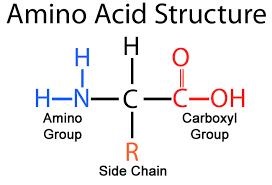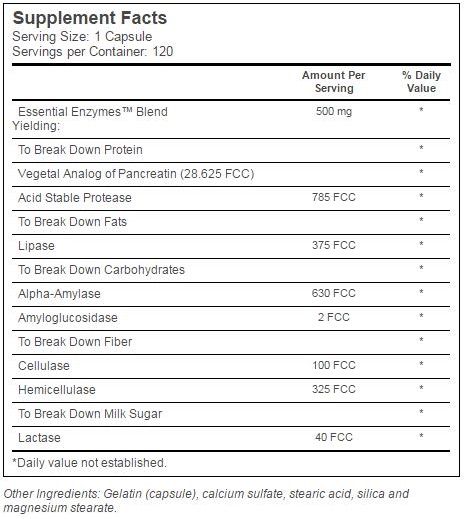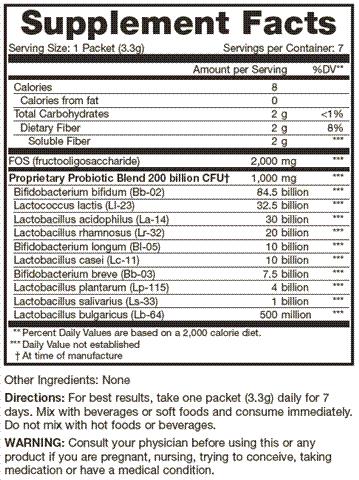How To Stop Stinky Protein Farts
Is There A Cure?
Let’s talk about a problem that is super embarrassing, unless you are married or in a committed relationship where dutch ovens are considered a loving torment. That problem is protein farts and is a shameful reality for fit people all over the world. But why does this happen? Can we improve the situation? Can we stop them from happening?
Well first, let’s get down to the stinky truth about why protein farts happen.
The Breakdown Of Protein Molecules
A protein molecule is made of amino acids and if we pretend for a minute that a protein molecule is a house, amino acids would be the cinder blocks that make up the house. When protein is digested it is broken down into amino acids and then into their final by-products.

The image above is the basic breakdown of an amino acid molecule structure and it reveals that amino acids contain nitrogen. This means that when more protein is consumed, more nitrogen will be produced as a by-product and the human body will have to release this nitrogen. Some of the nitrogen is released as ammonia in urine and some is released through farts. So the concept is very simple, more protein equals more nitrogen which equals more farts.
Why Do Protein Farts Stink?
Protein is harder for the body to breakdown and this becomes more of a problem when more protein is consumed because the body becomes overloaded with all this “extra work” to do. When the body becomes overloaded, it might not completely breakdown or digest the protein and this can be the cause of most stinky fart episodes. What happens is that these proteins are not fully broken down by the stomach and they end up in the small intestines and colon.
The small intestines and colon are not designed to handle this and all the extra material creates a breeding ground for bacteria to grow. The material then sits and putrefies, or rots, and all the bacteria create bad by-products that cause the very stinky farts amongst other side effects.
The third piece of this equation is that some people could have an underlying condition that could be contributing to producing excess gas such as being intolerant to certain foods or have medical issues concerning the digestive system.
How Do You Minimize Or Eliminate Protein Farts?
Now that we understand the process of how protein farts are created we can now try to minimize or eliminate them.
However, keep in mind that not everyone is equal and something that may cause one person to have excess gas may not be the case for someone else. With that being said, utilize the following suggestion below one at a time until you find what works for you.
- If you are farting a lot, stinky or not stinky, you want to minimize the gas in your system. If we are not willing to cut way back on protein, at least we can minimize other ways that gas or air might get into our system. You can reduce the air you ingest by not drinking a lot of carbonated drinks, by not chewing gum, not smoking and not shaking your protein shakes too much. All that froth is air that is going inside you with your shake. So shake it just enough to dissolve the protein.
- Change the type of protein you are using. Protein powders can be bought as a concentrate, isolate or hydrolysate. The concentrate has lactose which a lot of people have a hard time processing. Actually, a significant part of the population is lactose intolerant and this could be causing your gas issues. So try a protein isolate or hydrolysate which pretty much have zero lactose and are easier for your body to breakdown. I personally use SYNTHA-6 ISOLATE by BSN.
- Instead of adding milk to your protein powder, try almond milk, soy milk or water. When you consume protein with lactose and fat from the milk, you are creating a tough mix for your body to deal with which could be causing excess gas.
- Watch for sugar alcohols. Sugar alcohols are carbohydrates that the body does not completely absorb or metabolize so they do not “count” as carbs. Because of this, they are used in a lot of high protein products since they add the taste without the calories. Because they are not completely metabolized, they cause bad gas and even diarrhea with some people while others do not have any problems at all. Try removing them from your diet to see if that helps. Sugar alcohols will appear on food labels with the following names: sorbitol, mannitol, xylitol and some other similar names and it is pretty easy to spot them on a product’s label.
- When eating, eat your protein first! When digesting protein, your body uses enzymes and hydrochloric acid and the acid is a very important part of the process. Let’s say you are at a restaurant and you get some salad before your meal. Your body will release the hydrochloric acid when you ingest food not knowing you do not need acid to digest a salad. What happens next is that since the majority of this acid was released during the consumption of the salad, when the steak finally arrives your body will not have enough acid to completely break down the protein. The result is partially digested protein which, as discussed earlier, will sit in your small intestines and colon. If you are having gas issues, try prioritizing your protein on your meals by eating them first. Another option is to buy supplements that will provide you with the acid you need. A very well-known one is betaine hydrochloride and can be found in vitamin stores. But let me remind you to always consult with your doctor or nutritionist before buying supplements.
- Take enzymes as supplements. There are lot of great options in health food stores that will help with the acid balance and process your food better. Enzymes will also help with the absorption of macro nutrients to ensure the body is utilizing more of that precious protein being consumed. Now, when looking for an enzyme supplement, make sure it contains a variety of enzymes to digest all 3 types of macronutrients: protein, carbs and fat. Here is an example of a good label with enzymes to breakdown protein, carbs, fats, fiber and even lactose:

- Eat your fiber! Fiber helps move things along in your digestive tract which helps with healthy digestion and less gas. A high protein, low carb diet is a recipe for constipation because most of the fiber is in carb foods. Pay attention to this BUT make sure you start increasing the amount of fiber consumed slowly. A drastic change from a low fiber to a high fiber diet can cause bloating and a major increase in farting!
- Help the growth of good bacteria in your GI tract. As mentioned before, you can create an environment in your digestive tract that causes bad bacteria to grow and take over the good bacteria which will lay the foundation for protein farts. However, you can minimize this by helping the growth of good bacteria in your GI tract by either eating probiotic rich or fermented foods like yogurt, kefir or sauerkraut OR by taking a probiotic supplement. When buying probiotics, be cautious about the types or strains of bacteria instead of the amount. Companies are trying to get you to buy their probiotics with big numbers on the label like 30 billion or 50 billion, but studies cannot prove that more is better. Instead, make sure your probiotics contain the most important strains that will give you the most bang for your buck:
- Lactobacillus acidophilus— Helps nutrient absorption and is important for digestion of dairy.
- Bifidobacterium longum— This is a toxin cleaner and protects your gut wall.
- Bifidobacterium bifidum—This is important for dairy digestion but is also critical for breakdown of complex carbohydrates, fat, and protein.
Keep in mind that probiotics are live bacteria. For them to work, the bacteria needs to get into your stomach ALIVE. So look for an expiration date, information on the packaging, delivery system of the bacteria to your stomach AND information guaranteeing the quality through the expiration date.
Here are some good examples of information you should find on your probiotic product:
- Delayed-release vegetable capsules help ensure more friendly probiotics reach your intestinal tract*
- Quality, purity, and potency guaranteed through expiration
- Shelf Stable | Potency Promise™
- What we promise is what you get —50 Billion live probiotic cultures, shipped in a desiccant-lined bottle to help ensure your probiotics Arrive Alive and Stay Alive.1
Here is an example of a good label with all the main strains mentioned:

Hopefully the information provided will give you some things to try so you can stop clearing out rooms and get your farting situation under control! Just do yourself a favor and try one of these methods at a time so you know which one works the best for you.









